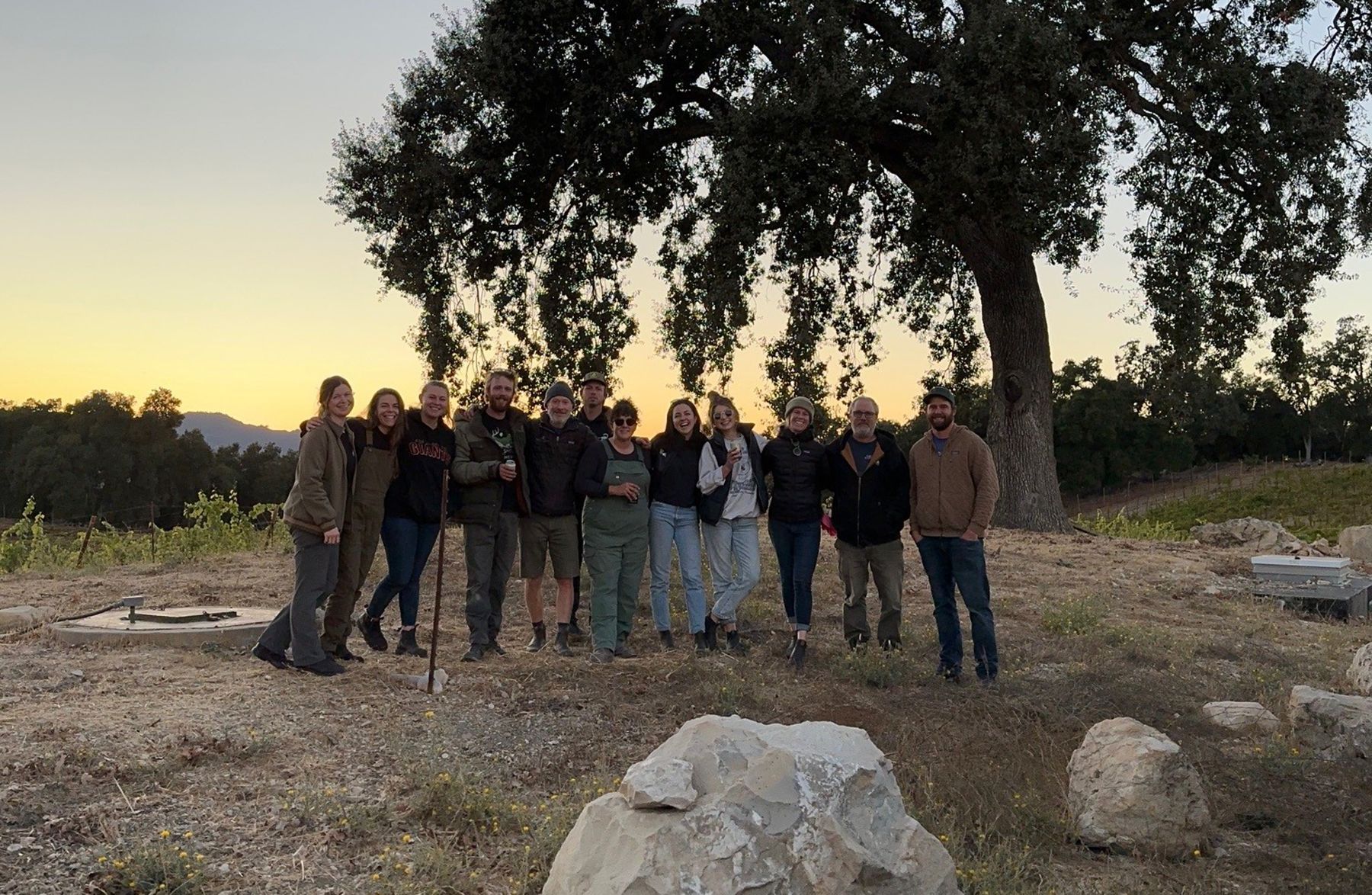Launched in 2007, the Liberty Wines Apprentice scheme is a diverse and challenging two-year programme, which comprises working across, and within, all aspects of one of the UK’s leading wine distributors. Since its launch in 2007, we have seen a phenomenal response to the scheme and some outstanding candidates.
As part of the experience, our Apprentices work two vintages in both the northern and southern hemispheres. What better way to learn about wine than by jumping into a fermentation tank to foot-tread some grapes?
Ceren Eroglu has recently returned from a 'life-changing' experience, working with Tablas Creek in California. Here she shares some of her many wonderful highlights.
Would you like to be a Liberty Wines Apprentice? Learn more about our Apprentice Scheme and the application process online here

Tablas Creek is a winery based in Paso Robles, California, named after the creek which flows through the estate. It was founded in 1987 by two leading wine families, the Perrin family, founders of Château de Beaucastel, and the Haas family, owners of the US importer Vineyard Brands.
Tablas’ ethos centres around regenerative production (including their motto, ‘farm like the world depends on it’), which comes across in every part of their winemaking process. They were the first winery to attain Regenerative Organic Certification in the US in 2020 and are a trailblazer in biodynamic, organic and sustainable viticulture in Paso Robles and beyond.
Chief Winemaker Neil Collins believes that great wines can only come from a foundation of the very best grapes, brought through fermentation as naturally as possible. All of their wines are fermented using wild, indigenous yeasts and ensure the purest vineyard and vintage expression.
My harvest experience at Tablas Creek was surreal, life-changing and, above all, joyful.
2023 was an odd vintage for California as a whole. It was a cool year, with harvest delayed about a month across the state, resulting in very real fears of incomplete grape ripening. However, a few weeks of much-needed warm weather and sunshine in October helped move things along and ultimately saw plenty of healthy, ripe fruit in the cellar!

My first few weeks at the winery were largely spent sorting grapes. Tablas Creek make red, white and rosé wines and we sorted the black grapes predominantly for red wine production, used in both the Estate (blends and single varieties) and Patelin wines. ‘Patelin’ is a French slang word for ‘neighbourhood’. These wines are made using fruit sourced from neighbouring sites, all of which were planted with cuttings from the Tablas Creek nursery and are farmed sustainably.
Seeing first-hand how different grape varieties look and behave, as well as noticing how early- and late-ripening grapes feel, brought to life my previous viticulture studies. Different types of Grenache, for example, from younger vines or grown in soils with higher pH, can look and taste entirely different.
My days at Tablas Creek were varied but always bookended with fermentation analysis and cap management (the layer of grape skins which rise to the top of the fermenting must). The team and I took daily samples of the musts to check density, concentration and temperature to closely track fermentation development. If I went into harvest with a romantic idea of cap management, that was quickly rectified thanks to multi-hour-long pump-overs, punch-downs, and pulse airs. As more fruit started fermenting, it was all hands on deck, creating the ultimate ‘harvest jigsaw’ (which is how Senior Assistant Winemaker Chelsea Franchi affectionately refers to trying to fit everything into the cellar!)

The second half of harvest draining, racking and work in tanks as more and more wines were fermented to dryness. Digging out tanks, press work and cleaning (so much cleaning!) became second nature. Post-fermentation, the wines were moved to a variety of vessels ranging from old oak barrels and concrete eggs to stainless steel tanks and large foudres. Here, they aged until bottling or blending, with some set to undergo further ageing in bottle before release.
The entire team at Tablas were a joy to learn from and work with. They are an exceptional group of winemakers and I cannot wait to taste their 2023 vintage!

Would you like to be a Liberty Wines Apprentice? Learn more about our Apprentice Scheme and the application process online here
